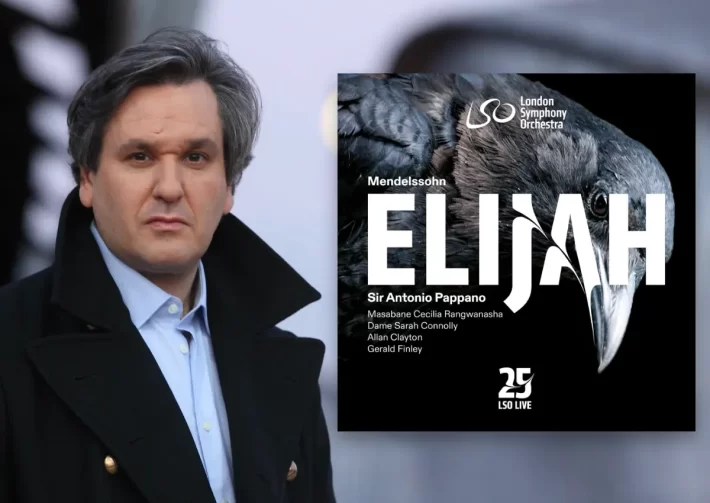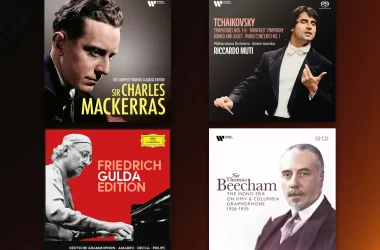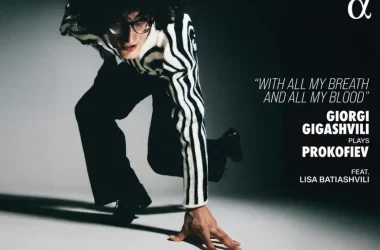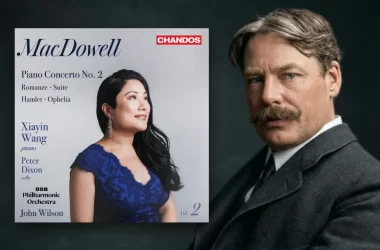“Elijah”, surely Mendelsohn’s best known choral work, is available in its English on about a dozen versions. Two of those stand out: the 1997 recording by Orchestra of the Age of Enlightenment and Edinburgh Festival Chorus led by Paul Daniel (Decca), and the 2012 version by Gabrieli and Paul McCreesh (Signum). That performance utilizes over four hundred musicians, the same number Mendelssohn conducted in the work’s premiere in August 1846. This new LSO recording involves about half that number.
Antonio pappano’s interpretation is extremely dramatic, with his operatic credentials in full view and tempos that keep the story moving. Even the most reflective arias (Act I’s “If with all your hearts” and Act II’s “O Rest in the Lord”) never wallow in Victorian sentimentality (something that does happen in Frühbeck de Burgos well regarded Warner Classics recording). The London Symphony provides accompaniments that both compliment and heighten the drama. Their care over orchestral color and balanced textures is apparent right from the opening bars, continuing through the final chorus.
Choral blend is excellent, and intonation never sags in what is a challenging (and lengthy) sing. Clarity of diction ensures that the listener rarely needs to follow the libretto. Most importantly, the choir understands it is an active part of the storytelling: when they call upon Baal to ignite the fire, we sense their haughty confidence that he will answer, and the incredulity when he does not. And in the best known movement, “He, watching over Israel,” their confident faith in the God of Israel is truly present.
The soloists and small ensembles are uniformly impressive, though Sarah Connolly is in even finer voice in McCreesh’s earlier recording. Soprano Masabane Cecilia Rangwanasha is ravishing – what an instrument! But of course, the most significant role is Elijah, sung here by Gerald Finley. A significant strength of the Daniel/Decca recording is Bryn Terfel’s fiery portrayal of the role. His Elijah is almost larger than life: imposing and forceful, instilling both faith and fear. Finley paints with subtler colors, but still embodies Elijah’s every emotional nuance.
With all these qualities, this should be an easy recommendation, but the recorded sound from London’s Barbican Hall does not match the excellence of the Decca and Signum recordings mentioned above. Admittedly, both of those are studio recordings, while this live recording was made over two nights in January 2024. The sound is clear and weighty, but climaxes feel contained, unable to fully bloom. The choir sometimes lacks presence, and the placement of soloists and small groups (as in the Trio “Lift Thine Eyes”) feel artificially produced.
Join The Classical Newsletter
Get weekly updates from The Classic Review delivered straight to your inbox.
The booklet includes a full list of performers, biographies for all soloists and smaller ensembles, the English libretto and excellent liner notes. The chemistry between the orchestra, choir and their new Chief Conductor is obvious, and if you can ignore the far from ideal recorded sound, this is a very enjoyable English Elijah.
Image: Riccardo Musacchio and Flavio Ianniello licensed to EMI Classics.

Recommended Comparisons
McCreesh | Daniel | Burgos | Masur
Mendelssohn – Elijah
Masabane Cecilia Rangwanasha – Soprano
Dame Sarah Connolly – Mezzo-Soprano
Allan Clayton – Tenor
Gerald Finley – Bass-baritone
Ewan Christian – Treble
The Guildhall Singers
London Symphony Chorus
London Symphony Orchestra
Sir Antonio Pappano – Conductor
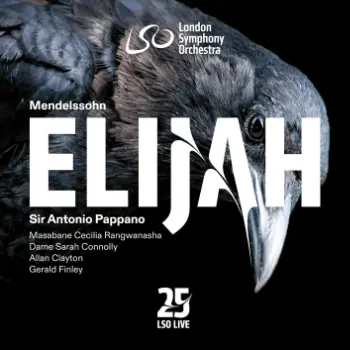
Check offers of this album on Amazon.
Album Details |
|
|---|---|
| Album name | Mendelssohn: Elijah |
| Label | LSO Live |
| Catalogue No. | 0898 |
| Amazon Music link | Stream here |
| Apple Music link | Stream here |

